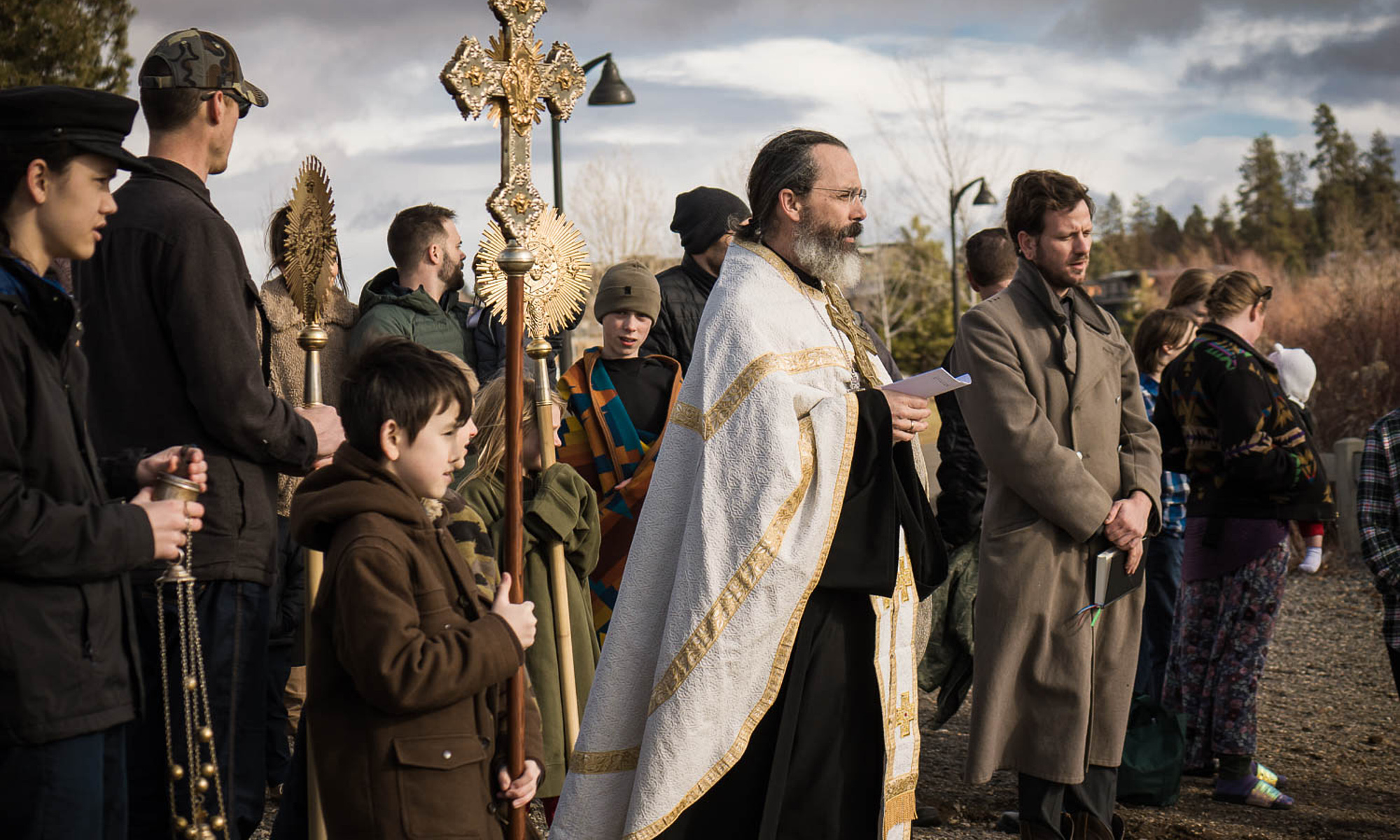At the center of the gospel passage in Luke 17, about the ten lepers is the idea of thanksgiving. In the Old Testament Law, we see different kinds of sacrifices brought to the Tabernacle, and one of those is a thank-offering. The word “eucharist” means ‘thanksgiving’, and the connection between our thanksgiving/eucharist and the thank-offerings of the Old Testament is no mere coincidence. There is a direct connection.
Under the Law, there were also sin offerings: in a sense these are offerings that need to be given for the sin of the people. But a thank-offering is a free will offering, an offering to God out of our gratitude. And that is what we offer in the liturgy, as well.
But this extends beyond the Liturgy. Christ dwells among us, indeed he dwells in us, and our heart is his altar. The priest in the church offers sacrifices on behalf of all the people, but each of us are priests of the altar of our hearts.
Fr. Alexander Schmemann says that the basic definition of what it is to be human is to be a priest. He says, “He stands in the center of the world and unifies it in his act of blessing God, of both receiving the world from God AND offering it to God–and by filling the world with this eucharist, he transforms life, the one that he receives from the world, into life in God, into communion. Through this act of Thanksgiving, we are taking the life of this world and transforming it into something different, something holy.
And this is not only thanksgiving for the good things we have received, but for all things, because everything we have received, by the grace of God, is useful for our salvation, and we should give thanks for all those things which aid us in our salvation.
Saint Theophan the Recluse, commenting on this same gospel passage, says, “Who has not received good things; …or, rather, what do we have in us or what happens to us that is not good for us?” He is saying the same thing: everything that happens to us is good for us, though maybe not comfortable, though maybe even intended for evil…but in this act of giving it to God, in thanks, it is transformed into something good for our salvation.
The act of thanksgiving is a powerful tool when trying to deal with our sins, our passions, and all those bad habits with which we struggle. Thanksgiving is a powerful tool because it is central to this overall life of thanksgiving, that is, turning all of life into a liturgy, a liturgy on the altar of your heart.
It is here, at this altar, that temptation is transformed into endurance, that the passions are transformed into holiness and righteousness, that…depression is transformed into peace.
Just like in this liturgy, here in the Church, when our gift of bread is transformed into the bread of life, Christ himself, and our mere wine is transformed into his life giving blood, …so, too, all of these things are transformed.
“Lord Jesus Christ, the passion of anger wells up in me, and I thank you for this trial.” And somehow gentleness flows out of your heart.
“Lord Jesus Christ, a desire to look and dwell on someone else in lust burns in me, …and I thank you for this trial.” And somehow, that burning passion is quenched.
“Lord Jesus Christ, I do not have enough money to cover everything, and I thank you for this trial of faith.” And somehow, there is enough.
“Lord Jesus Christ, I despair, I want to give up, I have no more energy or strength, and it seems all is lost, and I reach out in faith, knowing that it is in the very depths of humility that I find you.” And in your heart, which before felt dead and empty, there is a hope, a kernel of faith that God is the Lord, and he is there with you.
And in all these trials, where before we experienced defeat after defeat, we begin to see that old habits are broken, …begin to see that the downward cycle is brought under control.
And as we give these things to God in thanksgiving, and as he transforms them into something quite unexpected, …over time, we transform all these things, or rather, he transforms, through his grace–through his work, we transform this broken, depressing, passionate, angry, worldly life, into life in Christ.
That is the transformative power of thanksgiving. That is what it means to be human. Again, as Fr. Alexander said, we are all serving as priests at the altar of our hearts, and thereby, communing with God especially in our trials.
In the gospel passage, who drew close to Christ? The ten lepers called out from a distance, and they all were healed in body. Only the leper who returned to thank Christ drew close to him. This thanksgiving was the vehicle to his communion with Christ.
The others may have been healed, but of this one only, Christ says, thy faith hath made thee whole. Cling to Christ, the lover of man. Turn to him in thanksgiving, and you too… will be made whole.
